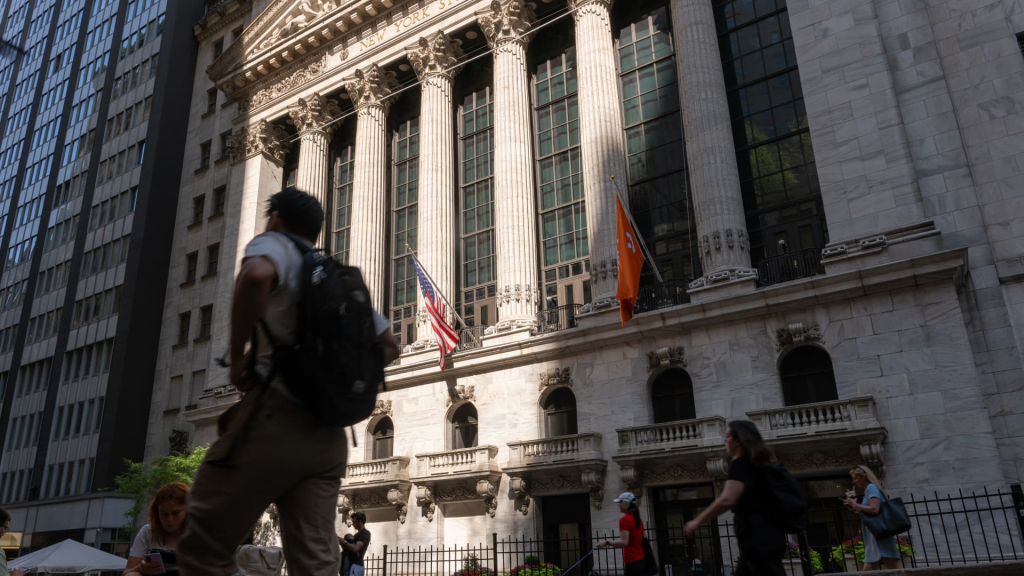Following a brief downturn caused by the Trump administration’s aggressive tariff strategies, expectations of a vigorous year for mergers and acquisitions (M&A) are regaining momentum.
Dealmaking in the United States surged early this year until President Donald Trump’s tariff announcements triggered significant market volatility, dampening transaction activity. Prior to the tariffs, M&A professionals were buoyed by the administration’s pro-business stance and a regulatory retreat, alongside easing inflation fears. These favorable conditions had set the stage for a promising resurgence of M&A in 2025, building off last year’s cautious recovery from a sluggish 2023.
As market conditions stabilized following Trump’s suspension of the highest tariffs, appetite for deals quickly revived. Analysts suggest that if borrowing costs remain manageable, robust activity may follow.
“The clarity in trade policy combined with recovering equities markets has created an environment conducive to sustained M&A activity, even in industries adversely affected by tariffs,” stated Kevin Ketcham, a mergers and acquisitions analyst at Mergermarket, in comments made to Finance Newso.
The total value of U.S. deals surged to over $227 billion in March, comprising 586 transactions. However, activity took a notable dip in April, with around 650 deals valued at approximately $134 billion, according to Mergermarket data.
Notably, deal activity appears to be bouncing back, with over 300 transactions valued at more than $125 billion reported as of May 20. This recovery is encouraging, particularly in light of a dramatic drop in activity following Trump’s “liberation day” tariff announcement, which witnessed a staggering 66% decline in U.S. deal activity during the first week of April compared to the prior week.
Charles Corpening, chief investment officer of West Lane Partners, predicts a resurgence in M&A activity post-summer, acknowledging the slowdown prompted by the trade conflict during the second quarter.
Corpening noted that rising bond yields adversely affect U.S. dealmaking, as increased rates lead to higher financing costs, thereby compressing asset prices.
He anticipates a rise in interest for special situations M&A, characterized by motivated sellers open to flexible terms, as well as smaller deals which are generally easier to finance and attract less regulatory scrutiny. “We are beginning to witness signs of recovery and gaining insights on the types of transactions likely to enter the pipeline soonest,” Corpening explained. “We expect these upcoming transactions to focus on special situations, anticipating that stronger businesses will hold out for more stable market conditions to optimize sale prices.”
Several noteworthy deals have been unveiled in recent months, predominantly within the technology, telecommunications, and utilities sectors.
Among the most significant transactions this year are:
- Jan. 10: Constellation Energy agreed to acquire Calpine, a private natural gas and geothermal company, for $16.4 billion.
- March 6: Walgreens disclosed plans for a $10 billion deal with private equity firm Sycamore Partners, potentially soaring to $23.7 billion with debt considerations included.
- March 18: Google has struck a deal to purchase cloud security startup Wiz for $32 billion.
- May 16: Charter Communications and Cox Communications, two leading cable providers in the U.S., announced plans to merge.
- May 15: Dick’s Sporting Goods announced intentions to acquire Foot Locker for $2.4 billion.
- May 21: AT&T announced it would acquire Lumen Technologies’ mass-market fiber business in a $5.75 billion transaction.
Ketcham suggests that the Dick’s-Foot Locker acquisition is indicative of a broader trend, particularly following Victoria’s Secret implementing a “poison pill” strategy. This tactic suggests that the retailer is wary of potential hostile takeover attempts, Ketcham noted.
Furthermore, with some consumer-oriented companies adapting to the evolving economic landscape rather than halting deal-making, Ketcham highlighted that packaged food leader Kraft Heinz has been evaluating strategic transactions to enhance shareholder value.
This inclination toward smaller-scale deals is already evident this year, exemplified by PepsiCo acquiring Poppi, a prebiotic soda brand, for $1.95 billion in March.


























